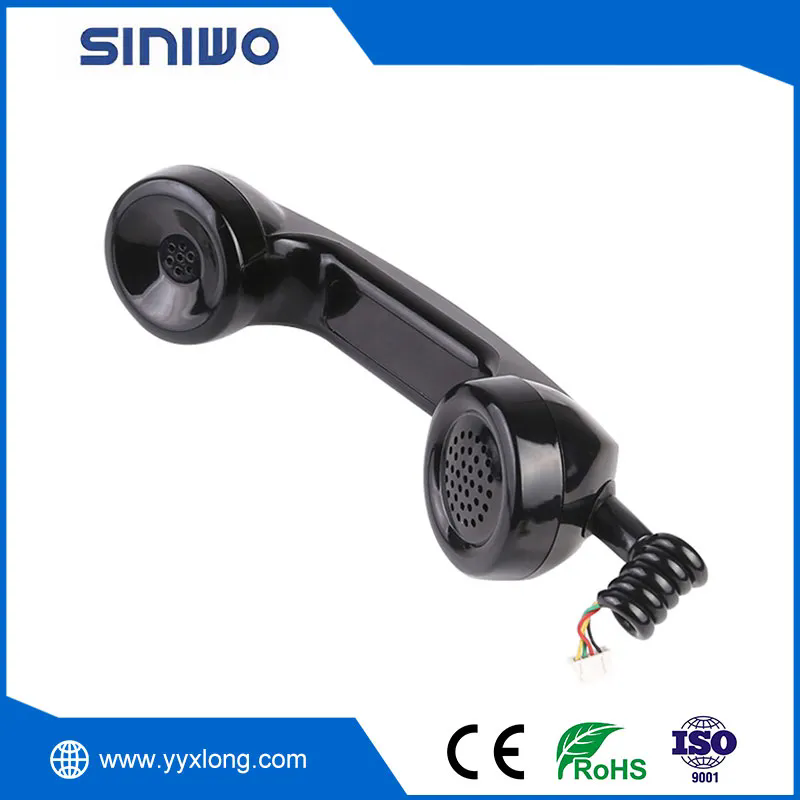Why Are Telephone Handsets Still Relevant in the Age of Smartphones?
2024-11-22
In today’s fast-paced world dominated by smartphones, it’s easy to assume that traditional telephone handsets have become obsolete. With the rise of mobile devices offering instant communication, why would anyone still use a telephone handset? However, despite the widespread use of smartphones, telephone handsets continue to play a significant role in both business and personal communication. In this blog, we’ll explore why telephone handsets are still relevant and how they continue to serve their purpose in various settings.
The Enduring Role of Telephone Handsets
1. Reliability and Stability
One of the main reasons why telephone handsets are still in use, particularly in business environments, is their reliability. Unlike smartphones, which rely on wireless networks and internet connectivity, landline handsets operate through a wired system. This ensures a more stable and uninterrupted connection, even during adverse weather conditions or power outages. For businesses and emergency services, having a reliable communication system is crucial, and landline phones provide that level of stability that mobile networks can’t always guarantee.
In addition, landline connections typically experience fewer issues with dropped calls or poor signal strength compared to mobile networks, especially in rural or remote areas. This makes telephone handsets a dependable option in areas where mobile coverage may be spotty.
2. Clearer Sound Quality
Another advantage of traditional telephone handsets is their sound quality. While smartphones and VOIP services have made significant strides in improving audio quality, there’s still something to be said for the crisp and clear sound of a wired landline connection. Telephone handsets are designed specifically to offer optimal sound quality during conversations, making them a preferred choice in environments where clear communication is essential, such as in healthcare, legal, and customer service settings.
For individuals who rely on phone conversations for professional or personal matters, the superior sound quality of a telephone handset can be an important factor in ensuring effective communication. Unlike smartphones, which may experience interference from background noise or signal loss, landline handsets are typically free from these issues.
3. Lower Operating Costs for Businesses
For many businesses, telephone handsets are still a cost-effective solution for day-to-day communication. While smartphones offer a multitude of features, they often come with a higher monthly service cost, particularly if employees are using data-intensive apps and services. Landline phones, on the other hand, typically have lower monthly service fees, making them a more budget-friendly option for businesses looking to keep their communication costs in check.
Additionally, many businesses opt for a system of telephone handsets as part of a multi-line network, which can be used for internal communication between employees. This helps to reduce the need for mobile devices while maintaining a seamless communication system within the organization.
4. Security and Privacy
In today’s world, privacy and security are paramount concerns. While smartphones offer a range of security features, they are also vulnerable to hacking, data breaches, and malware attacks. Telephone handsets, however, provide a more secure and private line of communication, especially for sensitive conversations. Since landline connections are less susceptible to hacking and spying compared to mobile networks, many professionals and organizations continue to rely on them for confidential discussions.
For example, financial institutions, legal professionals, and government offices often prefer to use landline handsets when discussing sensitive matters that require a higher level of confidentiality. The wired nature of the connection ensures that it is more difficult for unauthorized individuals to intercept conversations.
5. Simple to Use
Another reason why telephone handsets continue to have a place in modern society is their simplicity. For individuals who are not comfortable with smartphones or technology, landline telephones are often a more intuitive and straightforward option. Unlike smartphones, which require familiarity with touch screens, apps, and settings, telephone handsets usually have just a few buttons for dialing, making them easy for elderly people, non-tech-savvy individuals, or children to use.
This simplicity also makes them a great option for environments such as schools, hospitals, and senior living communities, where ease of use is a key consideration. Telephone handsets provide a no-frills communication solution that ensures anyone can make or receive a call with minimal hassle.
6. Integration with Office Systems
In many office environments, telephone handsets are integrated into a larger system of communication. For example, in corporate settings, office phones are often connected to a PBX (Private Branch Exchange) system, allowing employees to transfer calls, access voicemail, and perform other functions seamlessly. This type of integration enhances the overall communication efficiency within a business and supports features like call forwarding, conferencing, and automated receptionists.
While smartphones can offer some of these features through third-party apps, telephone handsets designed for office use are typically more efficient and optimized for the workplace. This makes them a valuable tool for businesses that require efficient and streamlined communication among teams and departments.
Conclusion: Why Telephone Handsets Are Here to Stay
In a world that’s increasingly reliant on smartphones, it’s easy to forget the enduring value of traditional telephone handsets. However, despite the advances in mobile technology, telephone handsets continue to provide benefits such as reliability, sound quality, security, and affordability. Whether in businesses, homes, or public services, these devices remain a trusted method of communication.
Telephone handsets are not only important for their practicality but also serve as an integral part of our communication infrastructure. While mobile phones will likely continue to dominate the market, telephone handsets will undoubtedly remain relevant for those seeking stable, secure, and straightforward communication options.



